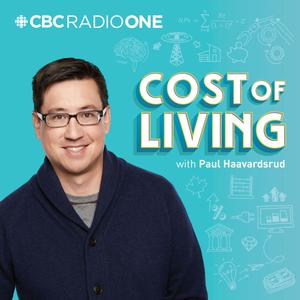
Cost of Living
CBC Radio
The Cost of Living ♥s money — how it makes (or breaks) us. We untangle the economic forces at play and transform our understanding of how money shapes our lives. Discover how everyday decisions connect with the larger economy in ways big, small, good, bad, obvious and unseen on The Cost of Living.
- 27 minutes 29 secondsWhy you can't escape holiday gift guides
Need to buy a gift for your mom or your dog? What about your esoteric boyfriend? There's a gift guide for that! But, why? It's holiday baking season and some Canadians are paying big bucks to get their hands on French butter. Plus — we'll tell you why some economists think — if you really love someone, you'll give the gift of cold, hard cash this Christmas.
21 December 2024, 12:10 am - 27 minutes 46 secondsWhen good companies do bad things
TD just pled guilty to money laundering $670-million in the US. So why were so many bank employees LOL-ing it up while it was happening under their noses? Also, why it's never a straight line to the checkout aisle and why it's so hard for young people to land a job these days.
14 December 2024, 12:40 am - 27 minutes 39 secondsWill OpenAI steal this too?
The makers of chat gpt call it scraping. Canadian media companies call it copying. Now, some are suing OpenAI, alleging it uses their work to train its AI models. But is it too late? Find out who's turning the Canada Post strike into a lucrative side hustle. Plus — why wait to retire when you can take mini-retirements along the way?
7 December 2024, 12:40 am - 26 minutes 15 secondsNo, your kids don't want your stuff
Older generations accumulated all the trappings of a good life. Now, as they downsize or pass away -- what happens to all of it? We have good news for new Canadians who need a credit history. And - is now the right time to bet big on carbon capture and storage?
30 November 2024, 12:40 am - 27 minutes 40 secondsDoes anyone go to the movies anymore?
Some are calling it "the year of the flop". But movie ticket sales have been sliding for two decades. Does Hollywood have a third act? We explain why weather forecasting is now a multi-billion dollar industry around the world. And, is the free trade era over? Former deputy PM, John Manley weighs in.
23 November 2024, 12:40 am - 27 minutes 40 secondsWhat do Star Wars, Twilight and Harry Styles have in common?
They've all inspired thousands of Fan Fiction stories. But what used to be dismissed as amateur writing has now become major fodder for publishers and Hollywood. Also, how breaking up with your boo can lead to breaking up with your favourite grocery store. Plus, why Canadians are drinking less booze.
16 November 2024, 12:40 am - 27 minutes 40 secondsHow private equity is gobbling up the Canadian economy
Tim Hortons, Westjet, the Bay — over the last 15 years, private equity firms have been on a buying spree. But what is it, exactly? Also, how a new rule south of the border could make canceling that pesky streaming subscription easier and we talk Trump, tariffs and Canadian oil.
9 November 2024, 1:10 am - 10 minutes 45 secondsWhat Trump's tariffs could cost Canadians
On the campaign trail, Donald Trump has promised to impose 10 - 20% tariffs on anything coming into the U.S. It's part of a seismic shift in Republican economic thinking — to put the American worker first. But would it work? And what would it mean for us? (Originally aired September 6, 2024)
6 November 2024, 6:10 pm - 27 minutes 41 secondsWhy thrifting has lost some of its thrill
Remember when you could find vintage designer stuff at Goodwill? These days, you're more likely to find piles of fast fashion. So what happened? Also, we explore why North America is swooning over Asian beauty products and the promise of "glass skin." Plus, what a warming Arctic means for business in Canada's great white north.
1 November 2024, 11:40 pm - 27 minutes 40 secondsWhy apples got so fancy (and pricey)
We explore how the Honeycrisp sparked a revolution in choice, and why we're willing to pay the price. Also, what it takes to make sure Fido is well taken care of when you're gone. Also, tiny condos used to be no-brainer investments but — not anymore. Thousands of them are now sitting on the market in Toronto. So, could this mean the return of livable spaces?
25 October 2024, 11:10 pm - 27 minutes 40 secondsMind the prosperity gap
Canadians pay more for the same stuff as Americans, but earn less. We explore why the gap is widening and what it means for our future. Also, table for one? More people are dining alone and restaurants are welcoming them with open arms. Plus, why big companies are a fact of life in Canada.
18 October 2024, 6:10 am - More Episodes? Get the App
Your feedback is valuable to us. Should you encounter any bugs, glitches, lack of functionality or other problems, please email us on [email protected] or join Moon.FM Telegram Group where you can talk directly to the dev team who are happy to answer any queries.
 Industry Interrupted
Industry Interrupted
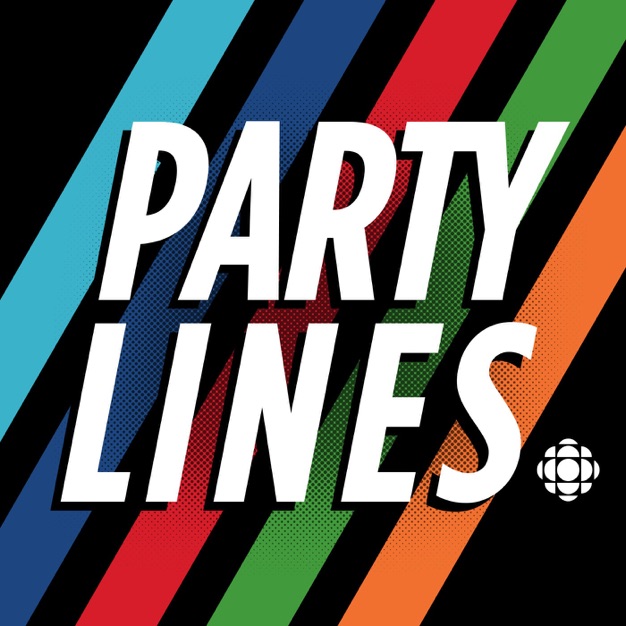 Party Lines
Party Lines
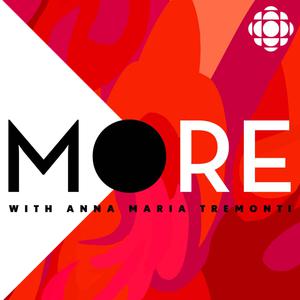 More with Anna Maria Tremonti
More with Anna Maria Tremonti
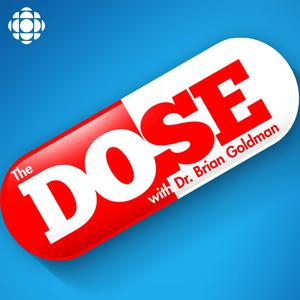 The Dose
The Dose
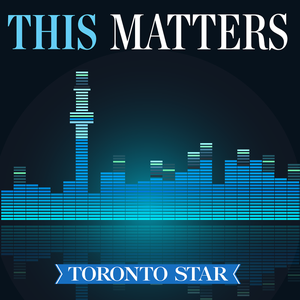 This Matters | Daily News Podcast
This Matters | Daily News Podcast